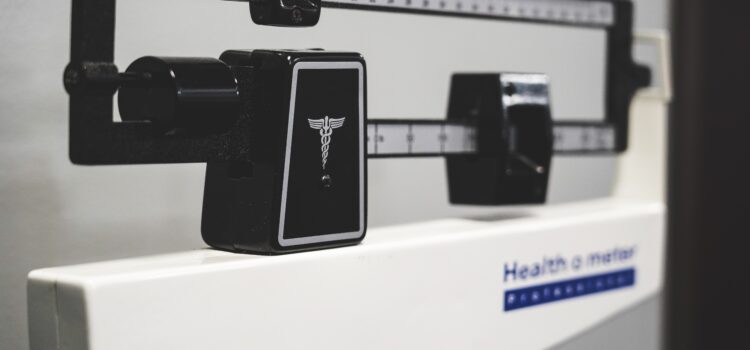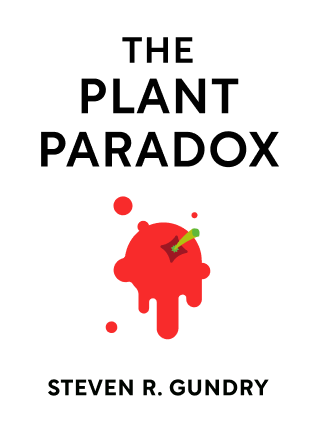

This article is an excerpt from the Shortform summary of "The Plant Paradox" by Steven R. Gundry. Shortform has the world's best summaries of books you should be reading.
Like this article? Sign up for a free trial here .
What does eating a lot of lectins do to the human body? Are lectins dangerous? Are there symptoms of lectin poisoning to watch out for?
The symptoms of lectin poisoning are numerous and varied. The body may respond with inflammation, digestive issues, weight gain, and more.
The human body is meant to fight lectins and the symptoms of lectin poisoning show how your body is doing that.
Symptoms of Lectin Poisoning
Humans have developed a four-pronged protection from plants’ toxins, including lectins. This defense can look like lectin toxicity symptoms, especially if the body has to fight lectins for a long time.
- Your saliva and the mucus in your nose contain sugars, which lectins naturally bind to. Those sugars are meant to trap the lectins before they reach your digestive system. Plus, your body produces extra mucus to coat your esophagus and catch more lectins as the food moves down (e.g. your nose runs when you eat something spicy because chili peppers and jalapenos are lectin-containing nightshades). Mucus production is one of the symptoms of lectin poisoning.
- Your stomach acid also digests certain—but not all—lectin proteins. Lectin toxicity symptoms may be magnified if you’re consuming lectins your stomach acid cannot digest.
- The natural bacteria in your mouth and gut help consume lectins before they can interfere with your cells and create gaps in your intestinal wall barrier. As you eat more lectins, your body builds up more of this bacteria; when you stop, the bacteria will disappear, so if you then resume eating lectins your body won’t be able to digest them and you’ll feel uncomfortable or slightly sick (this happens when gluten-free people eat gluten). The symptoms of lectin poisoning may feel like this.
- An additional layer of mucus that lines your intestines acts as a final line of defense to trap lectins and prevent them from interfering with your intestinal wall.
Although this system is designed to protect us from the harmful effects of lectins, if we consume too many lectins, they can overwhelm our natural defenses. Are lectins dangerous? They can be in higher quantities.
How Lectins Attack
Lectins have a multifaceted approach to attack your system, which sheds light on the symptoms of lectin poisoning. Are lectins dangerous? Some of their attacks can be.
First, they work on breaking through the mucosal wall that lines your intestines. Lectins are relatively large proteins (compared to the vitamins, minerals, fats, sugars, and simple proteins that your intestinal cells regularly absorb), and they have to try to squeeze through tight spaces between cells in the mucosal wall.
However, if your natural defenses are worn thin, the lectins can bind with certain cell receptors to create a chemical compound that opens spaces between the cells to allow the lectins (and other bacteria and toxins) to get through, causing leaky gut syndrome. Once lectins get through your intestinal wall, they can access your tissues, lymph nodes, glands, and bloodstream. As a foreign protein, your immune system naturally attacks them—and you’ll feel the effects via inflammation and other symptoms.
Second, lectins are designed to mimic other proteins. This means your immune system can’t tell the difference between the foreign lectins and the body’s own natural proteins and consequently attacks its own proteins. Additionally, different proteins instruct cells to do different actions (e.g. store fat, or attack invading organisms) so mistaking the lectins for another protein can cause your body to follow the wrong instructions.
Finally, lectins can bind to certain cell receptors to mimic a hormone or to block a hormone. Hormones are proteins that attach to docking ports on cell walls to instruct the cell on what to do; for example, insulin is a hormone that instructs cells to allow glucose to enter for fuel and store any extra glucose as fat. Hormones naturally leave the dock when they’re done, but lectins bind to these docks and sometimes never leave, meanwhile giving wrong instructions (e.g. chronically storing fat) or blocking the correct instructions. This is one way lectins disrupt communication in the body and you experience lectin toxicity symptoms.
The Lectin Paradox
Now that we’ve outlined how harmful lectins can be, you may be surprised to learn that certain lectins, in moderation, actually have health benefits. This can be explained by the concept of hormesis—or “the dose makes the poison”—which says that compounds that are beneficial in moderation can be harmful in excess.
In limited amounts, the toxins in lectins put a mild strain on your immune system and cells, which ultimately strengthens it. (Shortform note: This is similar to the way vaccines work.) A widely varied diet has major health benefits by exposing you to smaller amounts of many different types of nutrients and lectins; our ancestors evolved as a traveling species, and thus ate a huge variety of plants through their travels.
Certain lectins teach your immune system to resist pneumonia and other viruses, while others curb the growth of the HIV virus. Still others can have healing properties, and some lectins may even have the potential to treat cancer (Shortform note: Research for this is ongoing).
It’s only when you have too many of the same lectins in your system that your body’s natural functions start to go awry and you experience the symptoms of lectin poisoning.

———End of Preview———
Like what you just read? Read the rest of the world's best summary of Steven R. Gundry's "The Plant Paradox" at Shortform .
Here's what you'll find in our full The Plant Paradox summary :
- Why eating more vegetables isn't enough, and why some vegetables are toxic to your body
- The science behind lectins and how they tear apart your body, making you fat and sick
- The 6-week program to get your body back on healthy grack






